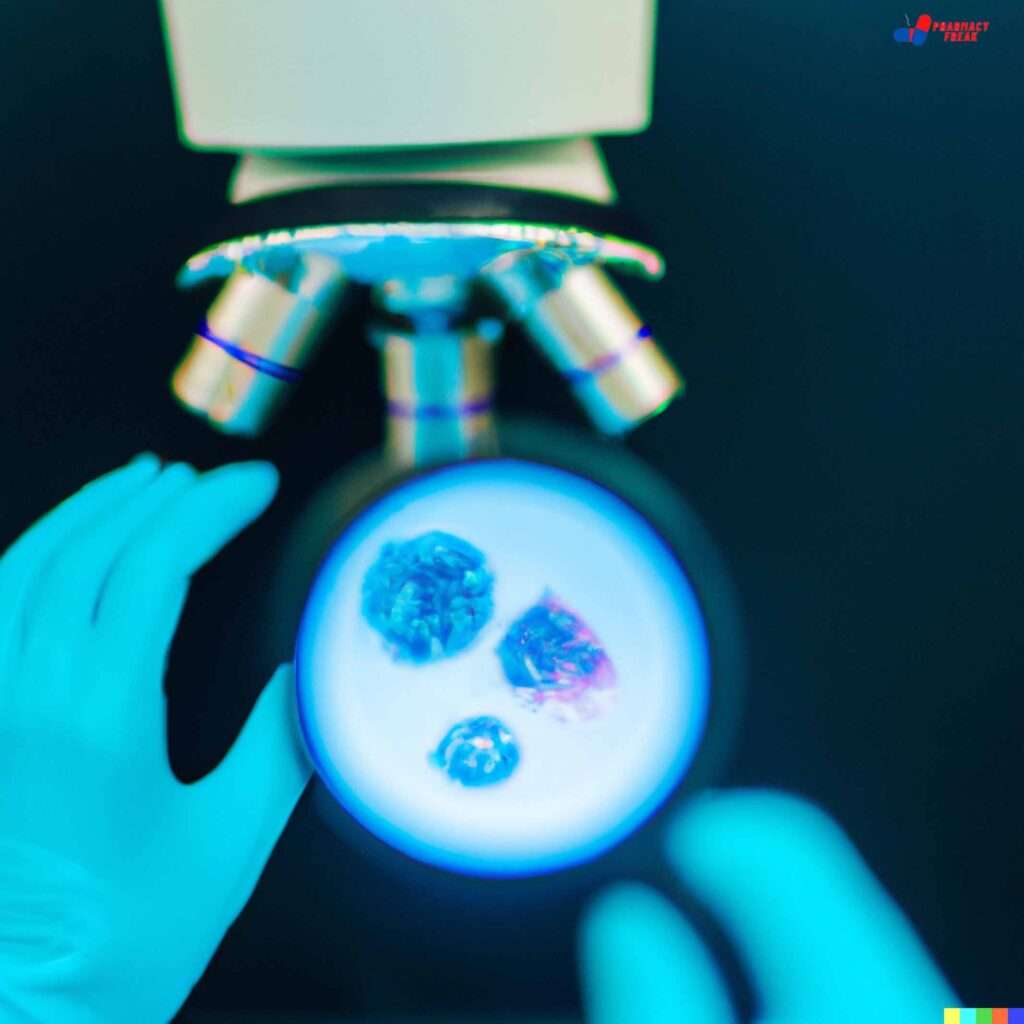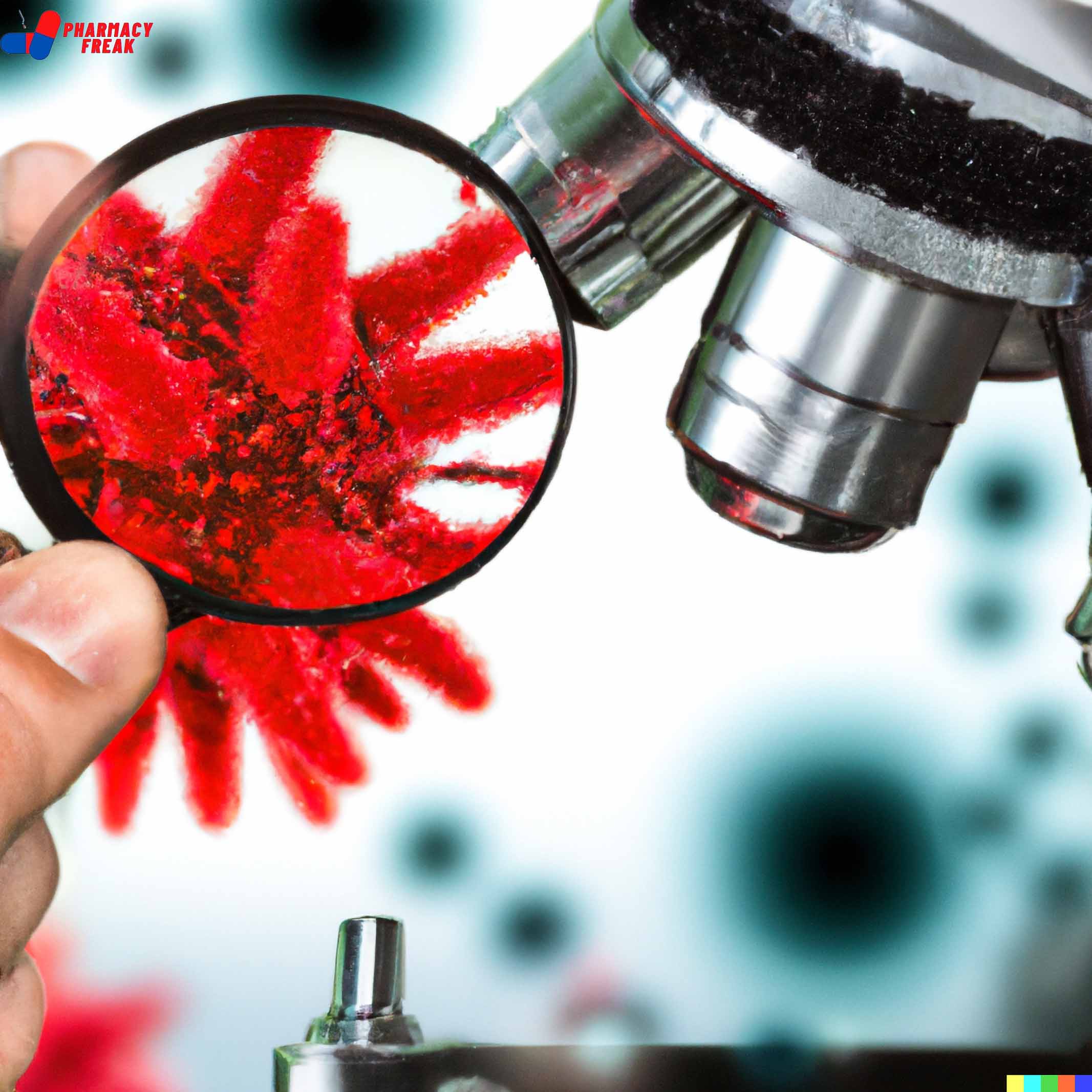
Write down the scope of microbiology.
The scope of microbiology :
- Production of Antibiotics
- In alcohol & vinegar industry
- Vitamin Production
- Productions of Acids and enzymes
- Baking Industry
- Cosmetics and Perfume
- Used in the production of dairy products
- Used as food
Production of Antibiotics
Antibiotics are compounds that can inhibit the growth or kill microorganisms. There are two main types of antibiotics: bacteriostatic, which inhibit the growth of bacteria, and bactericidal, which kill the bacteria. In 1929, Alexander Fleming discovered penicillin from Penicillium notatum, which became the first antibiotic used to treat bacterial infections. The scope of microbiology includes the study of antibiotics and how they work against microorganisms, as well as the discovery and development of new antibiotics to combat antibiotic-resistant bacteria.
Examples of some bacteria and fungi which produce antibiotics are given below:
| Name of Bacterium | Name of Antibiotic |
| Streptomyces aureofaciens | Aureomycin (Tetracycline) |
| Streptomyces venezuelae | Chloramphenicol |
| Streptomyces rimous | Oxytetracycline |
| Streptomyces erythraeus | Erythromycin |
| Streptomyces fradiae | Neomycin |
| Streptomyces kanamyceteus | Streptomycin |
| Bacillus subtilis | Bactriacin |
| Name of fungi | Name of Antibiotic |
| Pencillium notatum | Penicillin |
| Penicillion chrysogenum | Penicillin |
| Claviceps purpurea | Ergot |
| Penicillium griseofuloum | Griseofulvum |
In alcohol & vinegar industry
Yeast is a microorganism used in the fermentation of carbohydrates to produce alcohol. One glucose molecule is converted into two ethanol molecules and two carbon dioxide molecules. Clostridium acetobutylicum participates in the production of butyl alcohol. Bacterial actions are involved in the production of vinegar (acetic acid). In the first step, carbohydrates undergo fermentation and are converted into ethanol through the action of yeast. In the second step, aerobic bacteria such as Acetobacter aceti and Mycoderma aceti oxidize the alcohol into acetic acid. The scope of microbiology includes the study of various microorganisms, such as yeast and bacteria, that have important applications in the production of alcoholic beverages, biofuels, and other products through fermentation.
Vitamin Production
There are various types of vitamins obtained from the microorganisms e.g., Riboflavins(B₂) is obtained from Clostridium butylicum
Cobalamins (B12) obtained from Pseudomonas denitrificans.
Vitamins A,C,D and E are mostly found in algae.
Fungi (yeast) have high content of Vit B₁ Vit B₁2 and Vit C.
Productions of Acids and enzymes
List of microorganisms helping in production of acids and enzymes are:
| Microorganism | Acids |
| Penicillium glaucum | Gallic acid |
| Aspergillus gallomyces | Gallic acid |
| Mucor | Citric acid |
| Aspergillus niger | Gluconic Acid |
| Microorganism | Enzymes |
| Aspergillus oryzae | Amylase |
| Bacillus subtilis | Protease |
| Saccharomyces cerevisiae | Invertase |
| Streptococcus pyrogens | Streptokinase |
Baking Industry
Yeast is a microorganism used in the production of bread. Kneaded flour is mixed with yeast and allowed to ferment. Yeast converts starch into sugars and sugars into alcohol and carbon dioxide with the help of the enzyme zymase. As carbon dioxide is released during fermentation, the bread becomes porous and lightweight, with a spongy texture. The scope of microbiology includes the study of various microorganisms, such as yeast, that have important applications in the food industry, particularly in the production of fermented foods like bread.
Cosmetics and Perfume
Certain lichen species, such as Evernia and Ramatina, are used to make perfumes and soaps. Carrageenan, a mucilaginous substance, is secreted from seaweed and used in the production of ice cream, paint, shampoo, and other products. The scope of microbiology includes the study of various organisms, such as lichens and seaweed, that have important applications in the cosmetics, food, and pharmaceutical industries.
Used in the production of dairy products
Dairy products such as curd, butter, cheese and ghee are manufactured from bacterial activity. List of microorganisms used in diary industry are:
| Lactobacillus lactis | Cheese |
| Lactobacillus vulgaricus | Yoghurt |
| Streptococcus lactis | Curd |
| Streptococcus lactis | Butter |
| Streptococcus lactis & Streptococcus cremoris | Butter milk |
Agriculture & Soil fertility
Nitrogen is essential for the synthesis of proteins, nucleic acids, and other nitrogen-containing compounds. Plants take up nitrogen in the form of nitrates. Nitrogen fixation is done by many organisms, including algae (Anabina, Nostoc), bacteria (Nitrosomonas and Nitrobacter), and root nodules of leguminous plants (Rhizobium leguminosarum). Saprophytic fungi disintegrate decaying organic matter, releasing minerals that can be absorbed by plants. The scope of microbiology includes the study of various organisms, such as algae, bacteria, and fungi, that play essential roles in nitrogen fixation, nutrient cycling, and plant growth.
Used as food
Algae like Gelidium and Gracilaria produce agar-agar, a jelly substance used in the manufacture of ice cream. Some seaweeds, such as Laminaria, contain a lot of iodine, which is an essential mineral for the thyroid gland. Saragassum and Macrocystis are used as food for marine and domestic animals. Reindeer moss (Cladonia rangiferina) in the arctic region is eaten by reindeer and cattle, and Iceland moss (Cetraria islandica) has been used as food by humans in Iceland. The scope of microbiology includes the study of various organisms, including algae and lichens, which have important applications in various fields, such as food production and medicine.
Scope of microbiology is very broad.
FAQs
What is the scope of BSc microbiology?
ANS– Microorganisms like bacteria, viruses, fungi, and parasites, as well as their impacts on the environment, human health, and industries, are the focus of BSc Microbiology. Graduates can find employment in a variety of sectors.
Some common scopes are:
- Biotechnology
- Clinical laboratories
- Quality control
- Research and development
- Schooling and careers in academia
- Medicine
- Public health
What is the scope of bioinformatics in microbiology?
Ans– Bioinformatics is an emerging field that has expanded the scope of microbiology by providing tools to analyze vast amounts of data related to microorganisms. Bioinformatics has enabled researchers to identify new microbial species, predict their behavior, and design drugs to combat them. It has expanded the scope of microbiology in drug discovery and genetic engineering.
What is scope of microbiology?
ANS– The scope of microbiology is vast and diverse. It involves the study of microorganisms such as bacteria, viruses, fungi, and parasites. Microbiology has applications in various fields.
Such as:
- Medicine
- Biotechnology
- Agriculture
- Food industry
- Environmental science
What is the scope of medical microbiology?
Ans– The scope of medical microbiology involves the study of microorganisms that cause human diseases, their epidemiology, pathogenesis, diagnosis, treatment, and prevention. Medical microbiologists work in clinical laboratories, hospitals, public health departments, and research institutions. They identify infectious agents and perform tests to determine their susceptibility to antibiotics.
What is the general scope of microbiology?
Ans– the general scope of microbiology are:
- Study of microorganisms such as bacteria, viruses, fungi, and parasites
- Understanding the structure, physiology, genetics, and ecology of microorganisms
- Exploring the interactions of microorganisms with other living organisms and the environment
- Identifying and characterizing new microbial species
- Development of strategies for controlling and preventing infectious diseases
- Application of microbiology in industries such as food, pharmaceutical, and biotechnology
- Study of the role of microorganisms in environmental processes such as biodegradation and nutrient cycling
- Development of new microbial-based technologies to improve agriculture and environmental sustainability
- Investigation of the impact of microbial communities on human and animal health
- Study of the role of microorganisms in the evolution of life on Earth.
What is the scope of MSC microbiology?
Ans- The scope of an MSC in Microbiology includes various career paths such as research and development, quality control and assurance, teaching, and healthcare.
What is the scope of microbiology in India?
Ans- Microbiology has a broad scope in India with career opportunities in various sectors such as healthcare, pharmaceuticals, food and beverage industry, and research and development.
What is the scope of microbiology in Canada?
Ans- Microbiology has a wide scope in Canada with various opportunities in research and development, healthcare, biotechnology, environmental microbiology, and food safety.

I am a Registered Pharmacist under the Pharmacy Act, 1948, and the founder of PharmacyFreak.com. I hold a Bachelor of Pharmacy degree from Rungta College of Pharmaceutical Science and Research. With a strong academic foundation and practical knowledge, I am committed to providing accurate, easy-to-understand content to support pharmacy students and professionals. My aim is to make complex pharmaceutical concepts accessible and useful for real-world application.
Mail- Sachin@pharmacyfreak.com
